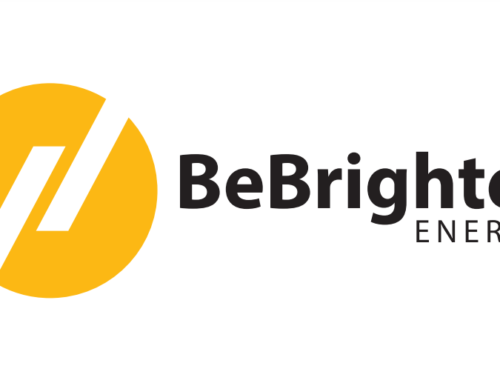Exploring The Advantages Of Residential Energy Storage Systems For Homeowners
As we step into a future where residential energy storage systems become central to eco-conscious homes, it’s crucial to understand the intricacies of these potent solutions. Homeowners are now positioned to harness solar energy and cutting-edge technology, ensuring a greener, more sustainable lifestyle. Join us as we explore the realm of home energy storage systems, where energy efficiency converges with smart living and learn how you can take charge of your home’s energy destiny.
- The Basics Of Residential Energy Storage Systems
Embarking on the journey toward energy independence starts with grasping the core principles of residential energy storage systems (RESS). These systems are transforming how homeowners manage and utilise electricity, providing a sustainable and efficient means to capture and store energy for residential use.
1.1 What Is Residential Energy Storage?
At its core, residential energy storage refers to a home’s ability to store electrical energy for later use. It’s part of a broader home energy system that typically includes energy generation, such as solar panels and may involve energy management systems optimising usage. The storage itself often employs batteries, frequently lithium-ion, to store energy for utilisation during peak utility rates or power outages.
1.2 The Technology Behind Residential ESS
The technology underpinning home energy storage systems is captivating, blending advanced battery technology, smart electronics and often renewable energy sources. The foundation of these systems is battery technology, which has evolved significantly, making storage more efficient and accessible. These systems seamlessly integrate with home energy management, enabling homeowners to not only store but also intelligently manage their energy use, leading to cost savings and enhanced energy independence.
- Financial Benefits For Homeowners
2.1 Cutting Energy Costs
A compelling advantage of home energy storage systems is the potential for significant energy cost savings. Homeowners can use these systems to effectively manage consumption during peak and off-peak rates. By storing energy during cheaper off-peak times and deploying it during peak hours when energy is pricier, savvy homeowners can see a substantial decrease in monthly utility bills.
Understanding Peak And Off-Peak Rates
Electricity rates fluctuate throughout the day based on demand. Peak hours, when energy is costlier due to high demand, typically occur in the late afternoon and evening. Off-peak hours, with lower rates, usually happen at night. Homeowners with energy storage can strategically charge their systems when rates are low and discharge during peak periods, maximising savings.
Real-Life Savings: Case Studies And Examples
Tangible examples underscore the savings potential. For instance, a California homeowner with a solar-plus-storage system could save an estimated $400 annually by avoiding high time-of-use rates, helping offset the initial investment over time.
2.2 Increasing Property Value
Investing in a residential energy storage system is not only about immediate cost savings but also a long-term investment in property. Homes with energy storage are often more appealing to buyers, potentially increasing property value and marketability.
ESS As A Long-Term Investment
While the upfront cost is significant, an energy storage system can be viewed as a long-term investment. Over time, it not only reduces ongoing energy expenses but also enhances property value. Studies suggest that homes with solar and storage systems can see up to a 4% increase in value, making residential ESS a wise financial move.
- Energy Reliability And Independence
3.1 Reducing Dependency On The Grid
A pivotal benefit of residential energy storage systems is the significant stride towards energy autonomy. By storing surplus energy from renewable sources like solar panels, homeowners can operate independently of the grid, especially during peak demand times or when prices are highest, reducing reliance on traditional power sources and enhancing sustainability.
The Role Of ESS In Energy Autonomy
An ESS extends beyond energy savings; it is a cornerstone in the quest for energy autonomy. With a robust ESS, homes can become self-sustaining power hubs, generating and storing their own electricity, reducing dependency on the grid. This shift promotes a greener lifestyle and fosters greater control over energy needs and costs.
3.2 Enhancing Energy Security
Moreover, home energy storage systems are integral to enhancing energy security. In the event of power outages, increasingly common due to extreme weather events, a home ESS serves as a reliable backup, ensuring lights stay on and critical appliances keep running.
ESS As A Shield Against Power Outages
Consider an ESS as a personal shield against the inconvenience and potential dangers of power outages. When the grid falters, a home energy storage system instantly takes over, providing uninterrupted power supply and peace of mind.
The Importance Of ESS In Disaster-Prone Areas
In disaster-prone areas, the value of a reliable ESS cannot be overstated. It ensures that homes remain powered during critical times when the grid might be compromised for extended periods, making ESS a critical component of emergency preparedness.
- Smart Home and ESS Synergy
4.1 ESS As Part Of Smart Home Ecosystem
In the interconnected world of smart home technology, residential energy storage systems (RESS) are becoming a central component. Integrating RESS with home automation systems enhances energy efficiency and elevates the overall smart home experience, allowing for precise energy management based on homeowner patterns and preferences.
Integrating ESS With Home Automation
The integration of ESS with home automation systems enables seamless, responsive energy management. Through smart thermostats, lighting and appliances, an ESS can efficiently allocate stored energy, reducing waste and optimising cost savings.
The Future Of Smart Homes With ESS
Looking ahead, the future of smart homes is linked to the evolution of ESS. As renewable energy adoption grows, the smart homes of the future will likely be designed with energy storage as a foundational element, creating intelligent and self-sustaining homes.
4.2 Intelligent Energy Management
Intelligent energy management is at the core of the synergy between smart homes and ESS. Adaptive software and learning algorithms within the ESS analyse energy usage patterns, making adjustments to maximise efficiency, reduce costs and minimise environmental impact.
Adaptive ESS Software For Efficient Use
Modern ESS software is sophisticated, adapting to homeowners’ living patterns and fluctuating renewable energy availability. This results in highly efficient use of stored power, ensuring there is no waste.
User Experiences: Controlling ESS For Optimal Benefit
Homeowners today enjoy unprecedented control over their energy storage systems. Through intuitive apps and interfaces, they can monitor and manage energy use, optimising for cost and sustainability. User experiences highlight the empowerment and satisfaction that comes from taking charge of one’s energy destiny.
Conclusion:
Embracing the power of residential energy storage systems not only sets the stage for a sustainable future but also represents a wise investment in your home’s energy independence. As a leading manufacturer and solution provider in China, Life-Younger is at the forefront of this transformative technology. We are committed to bringing you top-tier ESS solutions that seamlessly blend with your smart home, ensuring reliability, efficiency and peace of mind. To step into the future with Life-Younger’s innovative storage systems, visit us at https://www.life-younger.com/ and join the energy revolution today.
FAQs: Answering Your Burning Questions
What Is The Average Cost Of Installing An ESS?
The average cost to install a residential energy storage system can vary significantly based on capacity and complexity, ranging from approximately $5,000 to upwards of $30,000. This investment may be offset by tax credits, incentives and long-term savings on electricity bills.
Can I Install An ESS If I Don’t Have Solar Panels?
Yes, an ESS can be installed without solar panels. These systems capitalise on off-peak electricity rates and provide backup power, offering flexibility and energy independence to homes without solar energy production.
How Does ESS Contribute To The Electrical Grid?
Energy storage systems support the electrical grid by stabilising energy supply and demand, providing backup during peak load periods and enhancing overall efficiency and reliability.
What Are The Maintenance Requirements For An ESS?
Maintenance for a home energy storage system is typically minimal, involving regular inspections, firmware updates and ensuring the system is clean and at the recommended operating temperature.
Are There Any Risks Associated With Residential ESS?
While generally safe, risks can include electrical hazards or battery malfunctions. Proper professional installation and adherence to safety standards can mitigate most risks.
How Does Weather Affect The Performance Of An ESS?
Weather conditions, especially extreme temperatures, can impact battery efficiency and lifespan. Modern ESS often includes temperature control features to maintain optimal performance in various weather conditions.
Can An ESS Power My Home During A Blackout?
Yes, a properly sized ESS can power essential home functions during a blackout, providing energy independence and security. The duration of power support depends on the system’s capacity and the home’s energy consumption.
What Should I Look For When Choosing An ESS?
When selecting an ESS, consider capacity, scalability, battery life, warranty and compatibility with existing home energy systems. Evaluate the manufacturer’s reputation and customer support services as well.



Leave A Comment